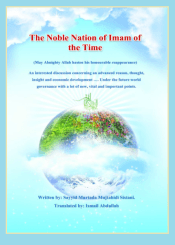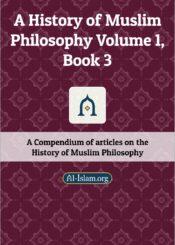Ali (a) and the Philosophy of the Divine

Ali (a) and the Philosophy of the Divine
Interpreter :
Number of volumes :
1
Publisher :
Publish number :
First
Publication year :
2005
(0 Votes)

(0 Votes)
Ali (a) and the Philosophy of the Divine
The quest to reconcile reason and revelation in Islam finds a luminous exemplar in Ali (ʿa) and the Philosophy of the Divine. This work presents Imam ʿAlī ibn Abī Ṭālib (ʿa) as a thinker whose vision integrates theology, philosophy, and spirituality, offering readers an approach where divine truth and human understanding meet.
About the Book
Ali (ʿa) and the Philosophy of the Divine—sometimes rendered as Ali and Metaphysics—is a treatise that explores the philosophical and spiritual insights attributed to Imam ʿAlī (ʿa), the first Imam of the Ahl al-Bayt (ʿa, an honorific meaning “peace be upon them”). The book draws on Nahj al-Balāgha (“The Path of Eloquence,” a collection of sermons, letters, and sayings attributed to Imam ʿAlī) and other classical sources to present his thought as both transcendent and practical. It examines topics such as the nature of existence, the essence of God, and the harmony between intellect (ʿaql = reason) and spiritual intuition. By engaging with philosophical reasoning and Sufi traditions (Islamic mystical teachings), the book situates Imam ʿAlī (ʿa) not only as a religious leader but also as a profound philosopher of the divine.
What You Will Discover
- Definition of a philosophy rooted in divine revelation.
- Imam ʿAlī’s (ʿa) views on existence, being, and the nature of God.
- Role of ʿaql (intellect) in seeking divine knowledge.
- Relation of the Imam’s teachings to Islamic philosophy.
- Interpretations of Nahj al-Balāgha as philosophical discourse.
- Links between mystical thought, ethics, and metaphysics.
- Contemporary relevance of his vision.
About the Author
The book’s precise authorship is uncertain. It is generally attributed to scholars working within the Shīʿī (the Shia tradition within Islam) intellectual heritage. While the individual writer is not identified, the text reflects a systematic attempt to organize Imam ʿAlī’s (ʿa) teachings into a coherent framework that bridges classical philosophy and spiritual reflection. This anonymity underscores its nature as a compilation, bringing together insights from multiple sources rather than the work of a single author.
Who Is This Book For?
This book is for students of Islamic philosophy, researchers of Shīʿī theology, and readers interested in how revelation, reason, and mystical insight converge in the teachings of Imam ʿAlī (ʿa).






